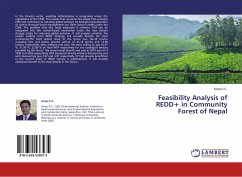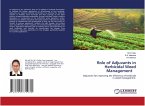The exotic weed, Lantana camara L (Lamiales : Verbenaceae is widely considered to be one of the greatest weed concerns for Indian forests due to its capacity to establish in native plant communities. The weed is widespread in the tropical forests of India and has for many years been a basis for concern about its role in in successional processes and forest integrity. Despite the vast amount of quantitive absorvations on Lantana camara since the early 20th century, many aspects of the ecology, biology and specifically invasion ecology of the weed are unclear. These have been incidental reports of facts of Lantana ecology in relation to studies conducted on tropical forests in India. Successful forest management will require a better understanding of the impacts of Lantana camara on community dynamics so that the local ecosystems can be preserved. Present study concludes that Lantana camara acted as pioneer and occupied open gaps and forest edges ahead of the native species that itreplaced.
Bitte wählen Sie Ihr Anliegen aus.
Rechnungen
Retourenschein anfordern
Bestellstatus
Storno








